Click to view our Accessibility Statement or contact us with accessibility-related questions






Layout Optimization Best Practices: The Corpus (Part 1)

search
close
Sort by: Newest
keyboard_arrow_down
Let’s get the conversation started!
Be the first to comment.
PRODUCTS YOU MAY LIKE
Trending Posts in Mechanical Keyboards

jdsvdropper
Drop ENTER keyboard with DCX Sleeper Mac variants and Rocky Bird
Black Drop ENTER keyboard with DCX Sleeper Mac variants for the Option and Command keys, and Rocky Bird red and black DCX keycaps.
Nov 19, 2024
AngryTank
Favorite Artisans
COME FORTH SHENRON!
Purple, Dragon Balls, and Seta! What more does a simple man need?
Nov 17, 2024
InsufferablePedant
ZealPC Aqua Zilents
Please ignore the filthy keyboard, it's been on a shelf for a minute.
Nov 15, 2024
Kyle-L
How to sell things on Drop & How Drop charge them?
Hi , this Kyle from China. Since a month ago, my team wanted to build a brand to produce the high quality of mechanical keyboard and headset to sell aboard. Now we already got the license to do so, and we can't wait to bring our products to meet everyone. But the products are still in the period of designing, it would take some time :( There are some questions we can't find the ways to solve - how to sell keyboard on Drop, and the details about how Drop charge per product? - Actually I sent an email to Drop Studio for some questions, but I didn't receive the answer.( Drop Studio also mentioned that they can contact me only if they were interested in my design / products ). So I'm here ask for help. If anyone can answer my question, I would really appreciate it :)
Nov 14, 2024

Neekolas714
Kicks & Keebs
Alpha Bravo Smoke
Finally finished my Keychron V5. Smooth, beautiful and stylish. What else could there be?
Nov 13, 2024

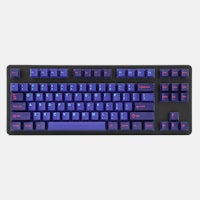
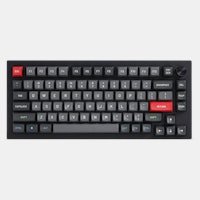
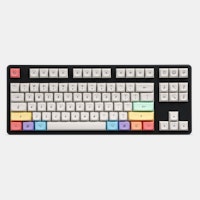


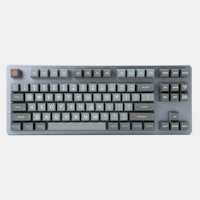

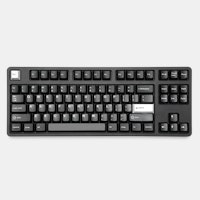
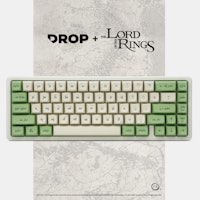








Custom corpora for logical layout design There are different approaches to obtaining or compiling corpora. This can quickly become a deep rabbit hole in itself, some people seem downright obsessive, so let's focus on how to put together a corpus effectively, without spending weeks on the process. Basically, the goal here is to gather as many texts as you can/need into a single file (or database). The list of the most common sources may include:
- general language statistics
- downloading existing corpora
- grabbing online articles, ebooks, etc.
- keylogging
- aggregating your own texts
I'm an advocate for personalized corpora based on texts you've personally typed out. One reason is that the overwhelming majority of people type in multiple languages, while available corpora typically focus on a single language. In addition, "average English" (or any other language) doesn't really exist on the personal level. Nonetheless, let's walk through the most common options: General language statistics Layout optimization algorithms simulate typing in various ways, but in general, they need the text of our corpus only for generating language statistics: letter, bigram and trigram frequencies, to calculate a score based on finger movement, hurdles, rolls, and all the various metrics. So basically you could use the language stats directly, skipping the corpus step.(Letter frequencies of various languages differ a lot! Source: Wikipedia) However, it's highly unlikely that general letter frequencies found online would accurately represent your typing habits or provide enough data beyond basic statistics. It’s interesting and often useful to contemplate on the difference of letter frequencies between languages, but these numbers won’t really help you when compiling your corpus, so I recommend not wasting time on these, at least for now. Existing corpora Similarly, downloading massive corpora like the full Wikipedia or Project Gutenberg is not only overkill but also involves someone else's text -- often from hundreds of years ago and on topics you'll never think about, let alone type about. In conclusion, if I were in your shoes, I'd disregard these easily accessible but too general and thus irrelevant corpora. Grabbing articles, e-books, etc. A more targeted selection of online content, easy to crawl and grab automatically or even to harvest manually, might be a better idea. If you're an aspiring writer, ebooks in the genre and style you're pursuing could be useful, as they better represent the words and character frequencies you'll encounter in your work. The same goes for journalists and bloggers: compiling a corpus based on articles and blog posts similar to your main topics and writing style may be quicker and easier than creating a fully personalized corpus. However, the result will only be as good as the effort you put into it. And if you happen to have a portfolio of published articles or books already, use those instead. Keyloggers vs aggregating When compiling a personal corpus tailored to your own unique typing habits, you are left with two main approaches: using a simple and trustworthy keylogger or meticulously creating a text file from your own written content.
Aggregating text manually or semi-manually is a cleaner, safer and quicker approach. However, this method may result in losing some useful data, such as modifiers, hotkeys, form data, passwords, navigation, etc. Pros and cons of aggregating text, i.e. copypasting your texts into a single file:
Summary After trying pretty much all of the options above, I've found that manually compiling a corpus from my own typewritten text works best for me. However, I'm aware that some people prefer using yearlong keylogged data. Both approaches can work as long as you’re aware of their advantages and disadvantages, and keep your corpus clean and sanitized. Either way, if I were in your shoes, I'd quickly start compiling my own personal corpus to aim for more optimal keymaps. Next time, in Part 2, we will look into how to do it exactly, and how long of a corpus you need for the best results. (Cover image by Michael D Beckwith.)